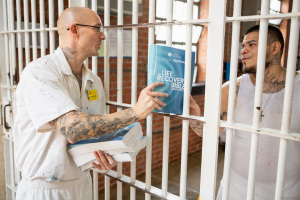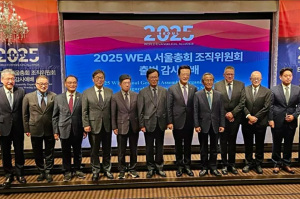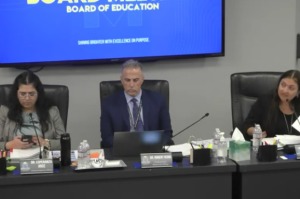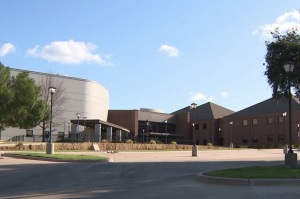Southern Baptist Leader Clarifies Alleged Romney Endorsement
An influential evangelical leader clarified that he has not and will not endorse former Massachusetts governor Mitt Romney for president following confusion over his statements on the Mormon contender's right to run for the office.
Dr. Richard Land, who heads the Southern Baptist Convention's public policy arm, explained in a statement Tuesday that "defending" Romney's right to run for president is "very different" than endorsing the former governor.
His clarification was in response to a CNN report last week that included a statement Romney made at a private event in South Carolina.
"I get good support from evangelical Christian leadership around the country, you know, despite a difference in religion," Romney had said. "I think it was Dr. Richard Land of the Southern Baptist Convention who said we're not electing a pastor-in-chief, and so I appreciate that support and just you remember that when you go to vote."
SBC's Ethics & Religious Liberty Commission pointed out that Romney was referring to two variations of the same quote by Land – "We're not electing a theologian-in-chief, but a commander-in-chief" and "We're not electing a pastor-in-chief, but a commander-in-chief."
"Those statements were made in response to questions about whether or not Governor Romney's faith was an absolute 'deal breaker' for Evangelicals in selecting a presidential candidate, not an endorsement of Governor Romney," Land explained.
"I have defended various candidates from time to time when I've felt that they have been unfairly or inaccurately criticized," the ERLC president added. "Neither defense nor assessment should be confused with endorsement."
The prominent evangelical leader stated that, as a "matter of policy," he has "not endorsed, do[es] not endorse and will not endorse candidates."
Former Gov. Romney is seeking to be the first Mormon U.S. president and has struggled to gain the support of Christian voters – many of which view Mormonism as a cult.
Some evangelical leaders have defended Romney's right to be equally considered by Christians despite their views on Mormonism.
Land, for example, said he views Mormonism as another religion, just as he considers Islam another religion even though it shares some biblical figures with Christianity. The Baptist leader has also gone as far as calling Mormonism a fourth Abrahamic religion.
"Judaism being the first, Christianity being the second, Islam being the third and the Church of Jesus Christ of Latter-day Saints being the fourth," Land recently said on "Political Capital."
But other evangelical leaders have voiced greater concern about Romney's Mormon faith and have advised Christians to make sure Romney explains his faith and its connection to his public duty before casting their vote for him.
"Values are shaped by religious beliefs, or lack thereof, and one's Mormon beliefs would surely in one sense or another shape one's values, priorities, conviction, etc.," said the Rev. Richard Cizik, vice president of governmental affairs of the 30-million member National Association of Evangelicals.
Mormons are not Christians and Romney should be made to clarify his religion before Christians "jump on the Romney bandwagon," Cizik added.
Yet it is unclear whether Romney will deliver a speech on his Mormon faith given that his advisers have discouraged such a move.
"I sort of like the idea myself," said Romney when asked by a New Hampshire voter Saturday about delivering a speech to explain his Mormon faith, according to The Associated Press.
"[But] the political advisers tell me no, no, no – it's not a good idea. It draws too much attention to that issue alone."
However, Romney said Monday that he hasn't delivered such a speech because he felt it has not become a political necessity, not simply because of his advisers' counsel.
"I have some folks who think I should do it soon, some say later, some say never, some say right away," Romney said, according to AP. "I'll make the decision. But there's no particular urgency because I'm making progress in the states where I'm campaigning."
Last month, the former Massachusetts governor finished first at the Washington Values Voter Summit, narrowly beating former Arkansas governor Mike Huckabee. Notably, however, while Romney won overall (online and onsite) by 30 votes (1,595 to 1,565), Huckabee had received 51.26 percent of the onsite votes in the summit's straw poll compared to Romney's 10.40 percent.




























